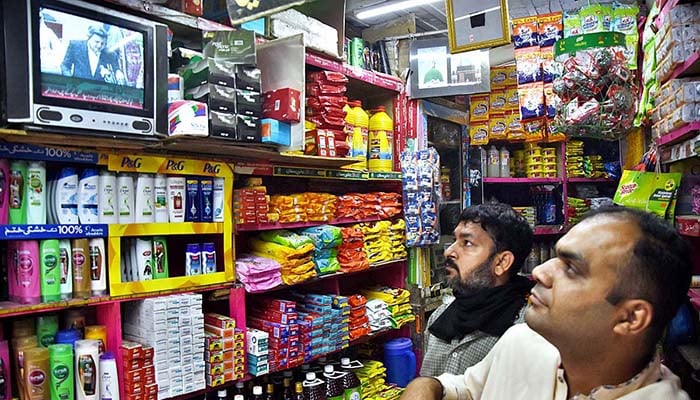A budget for the long term?
“This is clearly not a populist budget, but one reflecting hard decisions, possibly made after some external arm-twisting.”
June 12, 2019

The first budget presented by the current dispensation is also the first public indicator of the government’s macroeconomic framework, which has essentially been determined in consultation with the International Monetary Fund (IMF).
This is hardly new for Pakistan, but what is new is the “smoke and mirrors” hype surrounding this particular agreement. The only hint of what is coming is a May 12 press release from the Fund which mentions a possible $6 billion of funding to be disbursed over three years. The reforms to be supported include reducing public debt and bringing the primary deficit down to 0.6 per cent of the GDP, cost recovery in the energy sector, plugging leaks in state-owned enterprises, a market-driven exchange rate, and, in a new twist, combating the financing of terrorism.
Has the budget responded to these concerns?
Reducing the primary deficit (revenue minus non-interest expenditure) is obviously a prime concern this year. The outstanding feature of this budget is the emphasis on revenue generation, with a projected increase of 33 per cent in tax revenues, to Rs5.8 trillion, of which Rs5.6 trillion is to be collected by the Federal Board of Revenue (FBR). This projection is there in spite of the fact that the FBR’s tax revenue collection actually fell short of the target in the outgoing fiscal year (Rs4.1 trillion compared to a budget estimate of Rs4.4 trillion last year).
Both income and sales taxes (the two main sources of revenue for the federal government) are expected to show substantial increases over last year’s revised estimates (25 per cent for income tax and 41 per cent for sales tax respectively). In a shrinking economy, how will this come about?
There are some daring statements in the budget on slashing exemptions and concessions and if the government makes good on these promises, it means it has actually butted heads with some entrenched lobbies. The boldest measure is rescinding Statutory Notification (SRO) 1125, removing the zero rating on inputs and products of five export-oriented industries, and restoration of a standard rate of sales tax (17 per cent) on these products. There is little doubt that this loophole has been misused to evade taxation on domestically sold products. But the removal of the zero rating concession should rightfully be combined with a streamlined system of sales tax refunds for exporters. If this can be done, the government will have pulled off quite a feat. Sales tax exemptions (either outright or those effected through complex regimes) are also being abolished in the steel industry and for retailers, while in an another politically sensitive move, the sales tax on sugar has been enhanced from 8 per cent to the standard rate of 17 per cent.
There is also a clear attempt to take the bull by the horns when it comes to filing of income tax. Instead of letting people continue as non-filers and pay higher taxes on some transactions (something that many non-filers were willing to do for the chance to escape registration and documentation) the budget speech clearly states that a culture of filing taxes will be introduced. But beyond saying that personal income tax filing will be a simple process, the government doesn’t say much about how filing will be ensured. Deliberate tax evasion is a criminal offence in much of the western world, but in Pakistan evasion is only associated with minor fines at most. Will this change in the future?
Not surprisingly, debt servicing dominates the expenditure estimates, increasing 45 per cent over last year’s revised figures to top Rs2.9 trillion. Defence stays more or less constant at just over Rs1.1 trillion (and no, this is not a gracious concession, but simply what needed to be done in these dire circumstances). The figures on last year’s development expenditure make for depressing reading, with the federal Public Sector Development Program (PSDP) falling short by Rs300 billion. It’s hard not to see that happening again this year.
There are hints in the budget speech of energy sector reform to reduce the circular debt, and a reference to the Rs1.3 billion loss attributed to state-owned enterprises, but no mention of privatization per se other than two LNG plants. This is an agenda still in the making so watch this space. Money laundering, has, however, been tackled explicitly, with the announcement of the establishment of a Directorate of Cross Border Currency Movement. It seems there will be more action in this sector in the next few months.
This is clearly not a populist budget, but one reflecting hard decisions, possibly made after some external arm twisting. In many ways, it is appropriate for a government at the start of a five-year term, which is pledging to institute a structural reform agenda. The PTI’s economic performance so far has been lacklustre, characterized as it was by indecision and obfuscation. Let's hope the budget, tough though it is, is the start of a more confident style of management.
Aftab is the Executive Director, Verso Consulting, Islamabad.
Note: The views expressed are those of the author, and do not necessarily reflect the official policy or position of Geo News or the Jang Group.











